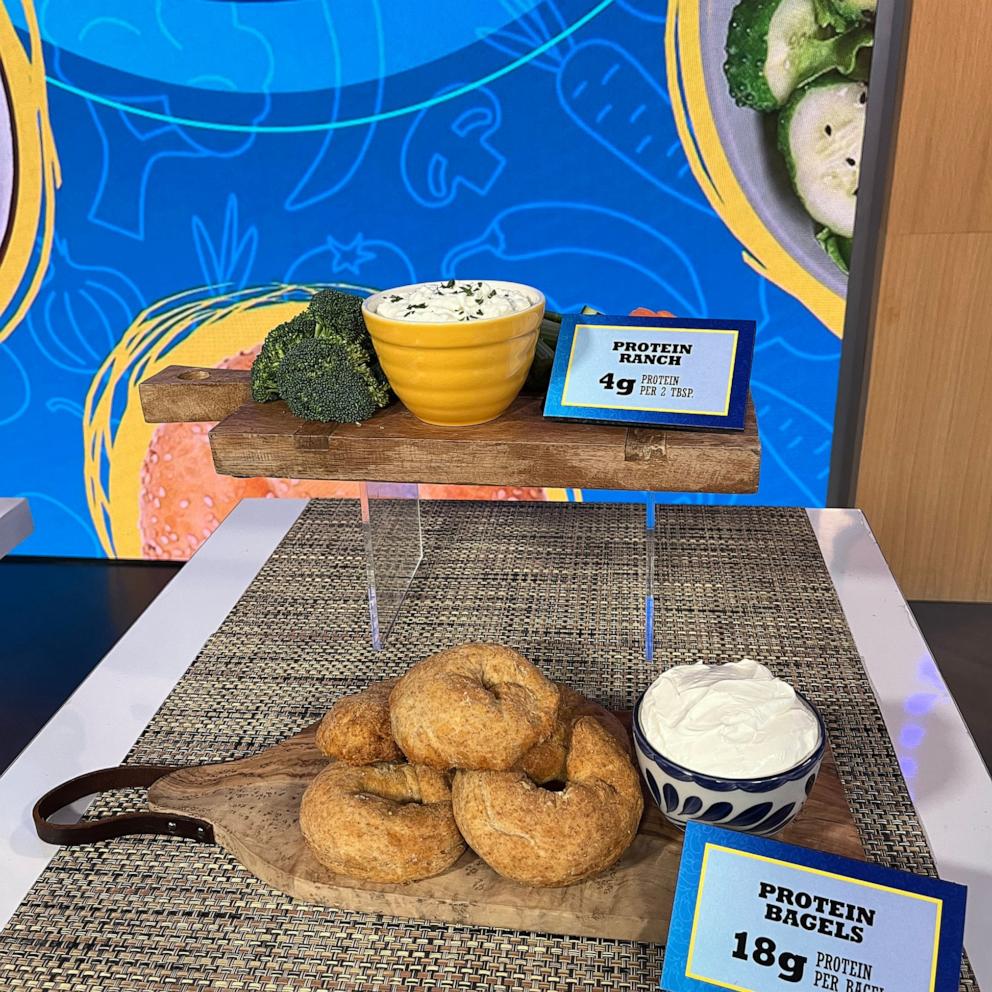What to know about the ‘oat-zempic’ weight loss trend
With the use of drugs like Ozempic, Wegovy and Mounjaro growing in popularity for weight loss, some people are trying to get similar results using a lower-cost and easily accessible option, dry oats.
Experts say this trend does not mimic the way these drugs used for weight loss work and could have negative health impacts.
Anita Soth of California told "Good Morning America" she decided to try a meal replacement drink known as "oat-zempic" in order to lose weight for an upcoming trip.
"I've been struggling with my weight loss journey for a little while," Soth said. "I have a trip in a couple weeks so I needed to lose a little extra pounds, so I just said, 'I'm going to give it a try.'"
Soth told "GMA" she lost around four pounds in several days by following the "oat-zempic" routine along with intermittent fasting, or time-restricted feeding, where you limit the times during which you eat, typically only in an eight-hour time period.
The meal replacement drink known as "oat-zempic" is made by blending a mix of oats, lime and water with a sprinkle of cinnamon.

Brandy Frasier, a mom of three, told "GMA" she has found that combining the drink with low-calorie, high-protein meals each day has helped get her closer to her goal weight.
"I needed a pick-me-up because often when losing weight, it's very slow. And when you don't see progress on the scale, you get discouraged," Frasier said, adding that the weight loss she's seen has given her "energy back." "And I'm able to walk longer, my knees are not hurting as much. So hopefully that all will continue."
Ozempic, Mounjaro and Wegovy and other drugs used for weight loss can cost more than $1,000 a month without insurance coverage.
Both Ozempic and Mounjaro are approved by the U.S. Food and Drug Administration to treat Type 2 diabetes, but some doctors prescribe the medication "off-label" for weight loss, as is permissible by the U.S. Food and Drug Administration.

Wegovy, a medication that contains the same main ingredient as Ozempic, semaglutide, is FDA-approved for weight loss.
In November, the FDA approved Zepbound as a weight loss management treatment for people with obesity, or those who are overweight with at least one related underlying condition, such as high blood pressure -- the same prescribing guidance as Wegovy. As a diabetes drug, Zepbound is sold under the brand name Mounjaro, as the two medications contain the same active ingredient, tirzepatide.
The medications work by slowing down movement of food through the stomach and curbing appetite, which can lead to weight loss.
Side effects of the drugs can include severe nausea and constipation.
When it comes to "oat-zempic" as a substitution for a medication like Ozempic, Maya Feller, a registered dietitian and nutritionist, said people should not be confused.
"It absolutely does not mimic what Ozempic gives you," Feller said Monday on 'GMA." "This is a drink based in oats, water, a squeeze of lime juice and perhaps a dash of cinnamon. It is not a medication and it does not mimic Ozempic."
Feller noted that oats have important nutritional benefits, but she said, as a whole, the ingredients in the "oat-zempic" drink do not have all the nutritional benefits of a meal.

Feller said that people should seek the advice of a healthcare provider before starting a meal replacement drink to lose weight.
"If you're looking for a meal replacement, it needs to be done under clear medical supervision," she said. "I would not use this because you're not going to get all the nutrients that your body needs. You're essentially starving your cells of what they want so they can function optimally. It's simply not worth it."
Feller also said she encourages people to think of their "why" when it comes to losing weight and avoid following a crash diet to quickly lose pounds.
"I understand that folks out there really want to engage in weight loss. I get it," Feller said. "But we have to be thoughtful about how we do it and not go to the extreme."







